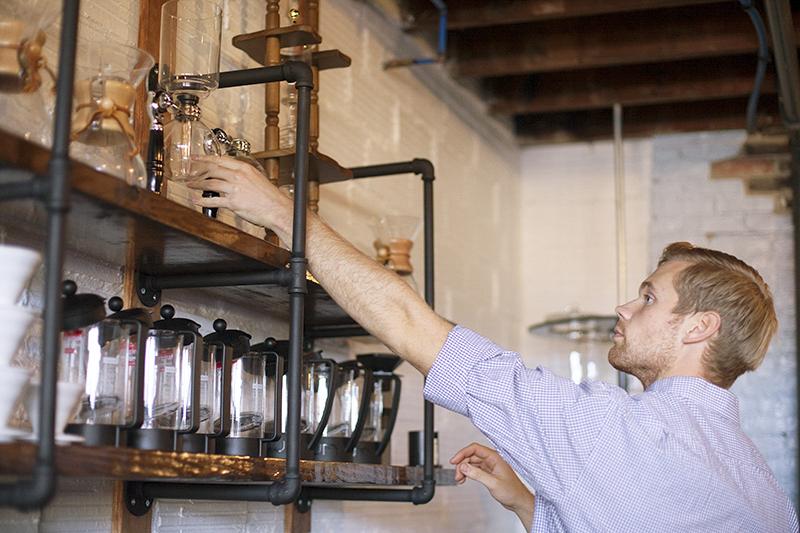How does a new business get its start? Is CoMo a good place to start a business? What should an up-and-coming entrepreneur be wary of? The owners of Yellow Dog Bookshop and Fretboard Coffee recently spoke to MOVE about the roller coaster ride of owning a business.
_So how does someone actually go about starting a new business?_ First, they have to get a business permit. It may not be the most glamorous part of running a business, but it’s necessary. After that, Yellow Dog Bookshop’s owner Joe Chevalier met with an accountant to determine the next steps to set up a corporation.
As for Fretboard Coffee, owner and roastmaster Dave Elman met up with MU’s Small Business & Technology Development Center, who gave him advice on how to create and run a startup company and helped prepare him with a business plan.
Then both businesses got funding from the bank. From there, as they say, the rest is history. (Or at least, they got to the heart of their respective businesses.)
_But is Columbia even a good place to start a business?_ According to Chevalier, it is.
“I think we have a lot of people in the community who are into small businesses,” Chevalier says. “With the success of things like Harold’s Doughnuts and more established businesses like Lizzie and Rocco’s and Sparky’s, I think people like small local businesses around here.”
But for Elman, it depends on the business.
“If you want to open your own McDonald’s franchise, then no,” Elman says, but for him and his concept of a coffee shop that features live music, “it was ideal, but … I knew I wanted a college town. A place big enough for its own personality but … still has that intimacy.”
All in all, Elman says he believes Columbia is good for new businesses.
“(There are) lots of students who are new and fresh … but a lot of professionals too, who have made their lives here,” Elman says.
But before Elman was a coffee roaster for his own shop and Chevalier the owner of an ever-transcendent bookshop, they had different careers. Chevalier was a Composition and Honors Seminar professor at Stephens College, while Elman had received a degree in psychology before launching into a 15-year career in information technology (all while being in a rock band on the side). The two prove just because you have a career in one thing doesn’t mean you can’t up and switch careers to follow your true passion.
Even true passions, though, come with bumps in the road. Upon being asked what the most difficult part of owning a business is, Chevalier says, “Oh, the paperwork. All the paperwork and the filing. All the hoops to jump through. It’s not as simple as you might think.”
In turn, Elman says the most difficult part of owning a business is that he never feels as though he’s done.
“It’s difficult for me sometimes to take a step back and realize what we’re doing here is really cool,” Elman says. He adds that he’s a fervent list-maker, saying, “the maddening thing is the list will never be done.”
On the other hand, Chevalier says the best part of owning his own business has been “the response from the community. We have so many people who have thanked us for keeping a bookstore downtown.
“It’s a scary thing to start your own small business, because you don’t really know what’s gonna happen,” Chevalier says. “But rest assured, the results are rewarding.”
Elman agrees that it’s worth it.
“When it’s your own, you find there’s limitless potential. It’s really gratifying,” says Elman. “The personal satisfaction that comes with (owning your own business) keeps you going on those long days.”
Chevalier and Elman both gave advice for others looking to start their own business.
“Have a good plan, a good idea of what you’re doing and a realistic view of your expenses and your income,” Chevalier says. Location is key for you and your business, he adds.
Elman’s advice? “More than anything, make sure it’s something you’re so excited about doing that you’re not gonna run out of energy,” he says.
And one more thing, Elman says, “It might not be easy, but it’s really satisfying.”








